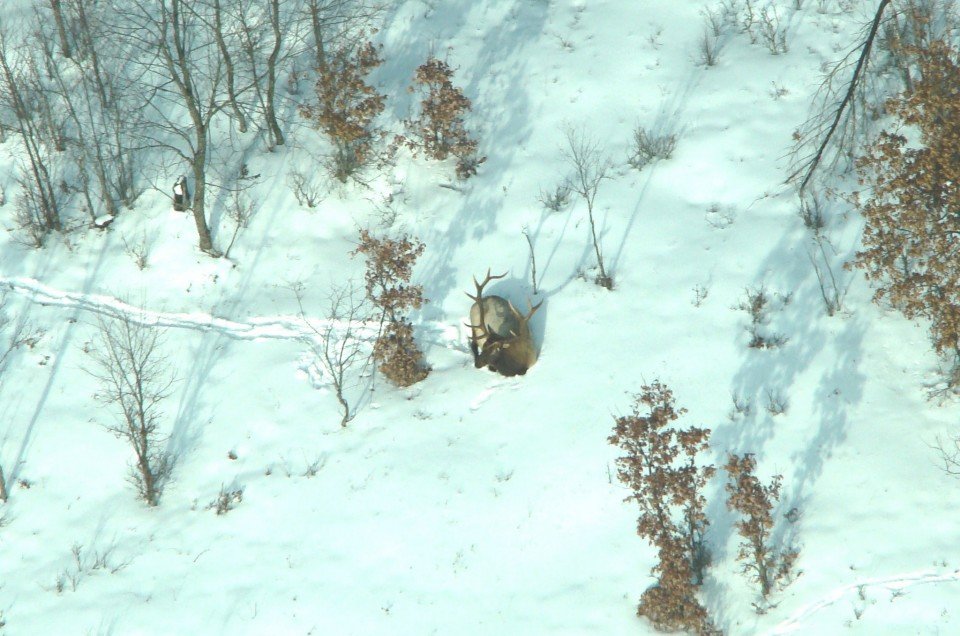After assessing the condition of a bull elk that was blocking a well-traversed snowmobile trail in late February, Michigan DNR officials euthanized the animal, suspected of having brainworm.
Common to whitetail deer, but also found in moose, elk, caribou and mule deer, brainworm affects neurological and behavioral responses in affected animals. Due to their acquired resistance, whitetails seldom show any physical symptoms of infection, but larger ungulates such as moose and elk, often display telltale signs of infection.
The effects of infection from a physical standpoint usual consist of unusually lethargic behaviors, stumbling, emaciation, loss of fear of humans and aggression.
After receiving a 911 call from local snowmobilers, DNR Sgt. Mark DePew was promptly dispatched to the scene.
“The elk had that snowmobile trail on lockdown. There were snowmobiles on either side of him, and he just got in the middle of the trail and wouldn’t let anybody go by,” DePew told MLIVE.
“Every time someone would try to approach him, he would get a little aggressive.”
The behavior exhibited by the elk made DePew’s decision an easy one, euthanizing the animal on the scene.
Despite the fact that roughly half of Michigan’s deer population carries brainworms, wildlife biologist and pathologist Thomas Cooley stated that there are relatively few cases resulting in the death of an animal.
“It’s a relatively rare occurrence, even now,” Cooley said.
The state has just six recorded cases of brainworm between 2012 and 2016, as each suspected case is brought to a lab in Lansing for further testing.
H/T: MLIVE




